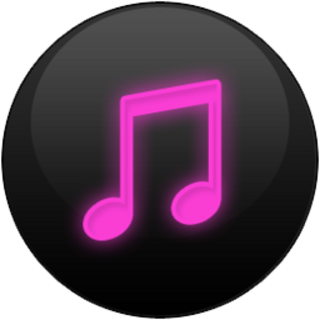Most Commented
How to be a Journalist - The Complete Guide to Journalism




Description material

Last updated 7/2020
MP4 | Video: h264, 1920x1080 | Audio: AAC, 44.1 KHz
Language: English | Size: 3.34 GB | Duration: 2h 49m
All you need to know to become a freelance journalist or staffer and get paid for what you write.
What you'll learn
write news and feature articles and get them published
work as a freelancer or apply for jobs with leading media organisations
Requirements
You need a computer - either Mac or PC - and bring your own passion...
Description
So, you want to be a journalist? But you've never known where to start...
Perhaps you thought you needed to go to college or university and spend thousands on a degree first...
Fact is, whoever you are and whatever life and career stage you're at, this complete guide will equip you with all the skills needed to become a proper journalist.
And you'll learn how to earn a living writing great journalism too.
How to be a Journalist - The Complete Guide is written and presented by Tony Bosworth, an experienced international editor and journalist across newspapers, magazines and online. Tony's written for some of the world's best daily newspapers, including the Guardian, Times, Financial Times and Independent.
He's launched or relaunched 15 magazines and websites. He's had his own weekly radio spot on London's LBC, and he's appeared on TV too.
But Tony is also an educator who's trained hundreds of beginner journalists in practical journalism and media law at colleges and universities across the UK and Australia.
"So I know what editors are looking for," says Tony. "Either freelance writing or full-time."
"They are not looking for people with college and university degrees, believe me. Quite simply, editors want good, well written stories. They want people who can sit down and pull a good news story together. They want people who can craft a compelling feature. They want writers who can interview. And they want writers who know and understand media law too."
"You will learn all these crucial skills, and more through my course. And at the end of the course you will be able to confidently go out and pitch real stories to editors, and they will listen because they know you can write."
Tony Bosworth is an editor and journalist so he knows what editors are looking for and through this course he shares all his experiences, knowledge, and even tricks of the trade, so you learn all the skills you need to be successful. Whether you're young, old, experienced or inexperienced - this enjoyable practical course will help turn you into a real journalist.
Video lectures, assignments and quizzes keep you interested, motivated and learning quickly.
Through the Udemy Discussion boards, you'll also be able to ask me questions anytime.
Here's what the course covers
• What is a journalist?
• What is news?
• Who, what, where, when, why, how?
• The news intro or lead
• Building your story
• Headlines
• Quotes in depth
• Apostrophies
• Accuracy
• Fact, opinion or both
• How to plan and set up interviews
• Getting the interview
• The confident interview
• Getting people to talk
• The different types of interviews
• Getting the facts right
• Keep your words to yourself
• When things don't go according to plan
• No comment and off the record
• What is a feature?
• The importance of word count
• Pictures with your story
• Specialist reporting
• What is media law and why do you need to know
• The basics of media law and privacy
• Contempt of court
• Slander and libel
• Defamation
• In the public interest
• Court reporting
• Getting the facts right
• Who does what
• Style guide
• What you need to know before you pitch
• Getting paid
• What next?
Sign up for my course and you will soon be on your way to becoming a real journalist.
Overview
Section 1: How to be a journalist - the complete guide
Lecture 1 Introduction
Section 2: What is a journo?
Lecture 2 What is a journalist?
Section 3: Writing news
Lecture 3 What is news?
Lecture 4 Who, what, where, when, why, how
Lecture 5 The news intro or lead
Lecture 6 Building your story
Lecture 7 Headlines
Lecture 8 Quotes in depth
Lecture 9 Apostrophes
Lecture 10 Accuracy
Lecture 11 Fact, opinion, or both?
Lecture 12 Quick Quiz
Lecture 13 Summary
Lecture 14 Assignment
Lecture 15 How have you done?
Section 4: Interviews
Lecture 16 How to plan and set-up interviews
Lecture 17 The confident interview
Lecture 18 Getting people to talk
Lecture 19 The different types of interview
Lecture 20 Getting the facts right
Lecture 21 Keep your words to yourself
Lecture 22 When things do not go according to plan
Lecture 23 No comment and off the record
Lecture 24 Summary
Section 5: Feature writing
Lecture 25 What is a feature?
Lecture 26 The importance of word count
Lecture 27 Pictures with your story
Lecture 28 Specialist reporting
Lecture 29 Quick Quiz
Section 6: Media Law
Lecture 30 What is media law and why you need to know
Lecture 31 The basics and privacy
Lecture 32 Contempt of court
Lecture 33 Slander and libel
Lecture 34 Defamation
Lecture 35 In the public interest
Lecture 36 Court reporting
Lecture 37 Quick Quiz
Lecture 38 Assignment - interview
Lecture 39 How have you done?
Section 7: Pitching story ideas
Lecture 40 Who does what?
Lecture 41 Style guide
Lecture 42 What you need to know before you pitch
Lecture 43 The pitch
Lecture 44 Getting paid
Section 8: What next...
Lecture 45 What next?
This course is for anyone who wants to be a journalist,The course is also an excellent refresher for all journalists
Buy Premium Account From My Download Links & Get Fastest Speed.
https://1dl.net/75lvc46931mm/How_to_be_a_Journalist_The_Complete_Guide_to_Journalism.part1.rar
https://1dl.net/73ioh16fzye5/How_to_be_a_Journalist_The_Complete_Guide_to_Journalism.part2.rar
https://nitroflare.com/view/F90F1D164571388/How_to_be_a_Journalist_The_Complete_Guide_to_Journalism.part1.rar
https://nitroflare.com/view/31EB07CE0D77331/How_to_be_a_Journalist_The_Complete_Guide_to_Journalism.part2.rar
https://rapidgator.net/file/0ea2a3c82b198c694f54bf63af011b9f/How_to_be_a_Journalist_The_Complete_Guide_to_Journalism.part1.rar.html
https://rapidgator.net/file/41c52c20cad2de32b8f26c6837ef0445/How_to_be_a_Journalist_The_Complete_Guide_to_Journalism.part2.rar.html
Join to our telegram Group
Information
Users of Guests are not allowed to comment this publication.
Users of Guests are not allowed to comment this publication.
Choose Site Language
Recommended news
Commented


![eM Client Pro 9.2.1735 Multilingual [Updated]](https://pikky.net/medium/wXgc.png)






![Movavi Video Editor 24.0.2.0 Multilingual [ Updated]](https://pikky.net/medium/qhrc.png)

